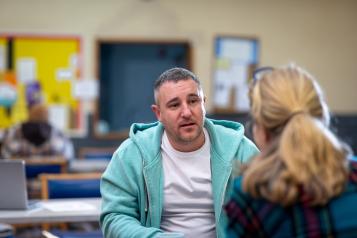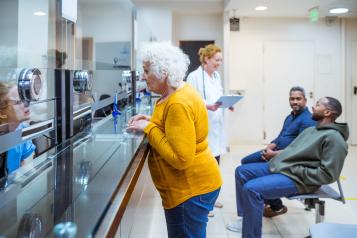Four ways your views have helped make health and care accessible

1. Making dental practices Deaf-friendly
Going to the dentist should be a simple process, but for people who are Deaf, unless steps are put in place to make sure their needs are met, it can be very frustrating. Healthwatch Wokingham spoke to a local Deaf patient, to find out about his experience of going to the dentist. He carried out a mystery shopper exercise at 10 local dentists to find out how easy it was to access appointments and facilities as a Deaf person. He made a number of suggestions for ways practices could become more Deaf-friendly, including awareness training for staff, clear information for patients, and better use of technology.
When people from the Deaf community raised concerns about accessing local GP services, Healthwatch Worcestershire took action and visited all the GP surgeries in the area. Their report and recommendations have been used to improve services and inform how the Care Quality Commission inspect primary care services.
People from the Deaf community in Bedford struggled to access the switchboard at their local hospital. Healthwatch Bedford Borough worked with local organisations to tackle the issue, and have now made it possible for people to email the hospital instead.
2. Sharing changes people with autism would like to see in GP surgeries
Local people with autism and parents of autistic children in Islington shared their views with Healthwatch about how health and care services could improve the way they communicate. People made a number of suggestions for improvements, such as alternative seating areas for patients to reduce stress and additional training for receptionists in how to communicate with people with autism.
3. Ensuring publications are accessible for all
After visiting a care home where some of the residents had learning difficulties, Healthwatch Sandwell shared an easy read version of their report. This meant that residents who lived at the care home could clearly understand the concerns and recommendations raised to improve the service.
4. Explaining things in a way people can understand
People with learning disabilities told Healthwatch Leeds that some doctors don't explain things to them, which can make medical examinations scary. To challenge these barriers with health professionals, Healthwatch Leeds worked together with local organisations to create a short video.
Healthwatch Camden found that people who are visually impaired, Deaf or have learning difficulties face communication challenges when accessing GP services in Camden. Their findings have been used to encourage conversations with local GP surgeries to improve access for local people.


